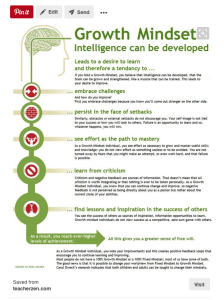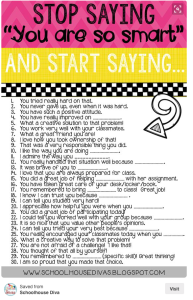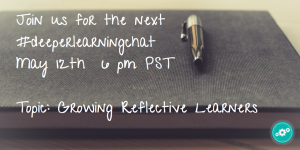Understanding Mindset
There is a burgeoning amount of research and resources out there on mindset in education. Here are a few of our favorites:
- “The Effort Effect” by Carol Dweck
- This easy-to-digest graphic, also by Carol Dweck
- This engaging Ted Talk by Eduardo Briceno
- Jo Boaler’s recent book on mathematical mindsets

Why it’s Important
Amongst many reasons, It’s critical for students to have an academic mindset because this is the condition that makes them ripe for learning. Not only does it increase the chances of students persisting in school, but it also sets them up to be a life-long learner and contributor to our society. The development of academic mindsets requires that students get to know themselves as a learner. “Learning how to learn”, as Hewlett defines it is a valuable skill that will benefit students in all future endeavors. And finally, the success of our country to compete in a global economy is dependent upon the future workforce. If we are to develop innovators we must foster their skill-sets and demeanors accordingly. The greatest inventors in history were also some of the greatest failures at one point. We must teach our students that failure can lead to success, and that is only possible with an academic mindset.
Ok, so you are on board with this whole mindset thing, now how do you do it?! Read on for some tips for your craft:
- Have an end in mind
It’s important to have an ultimate mindset goal from which you are thinking, working, planning backward. Think about when your students graduate, what demeanors would you like them to embody? How do you want to see themselves as learners? How do you want them to think about learning? From that point on, scaffold back how you will get them there! Some organizations, such as BIE call this “the Ideal graduate exercise”. New Tech Network made their mark with their big goals for student learners through their agency rubric. Hewlett has articulated their vision through the Deeper Learning Competencies. And more familiar to many, may be your local district initiatives and learning targets for students.
- Be Mindful of language
This one is more difficult than it sounds. When I first learned about the research behind growth mindset I became 
Let’s stop there, just those 2 things can make a big difference! How does the research on mindset resonate with you and your life experiences? What would you like try out that will help foster a growth mindset in your children or students?

If you are interested in more research or classroom ideas on mindset check out and follow our Pinterest Board I also invite you to join our #deeperlearningchat on Twitter on May 12th at 6 pm PST, which will be on student reflection, a pillar to fostering growth mindset in our students.